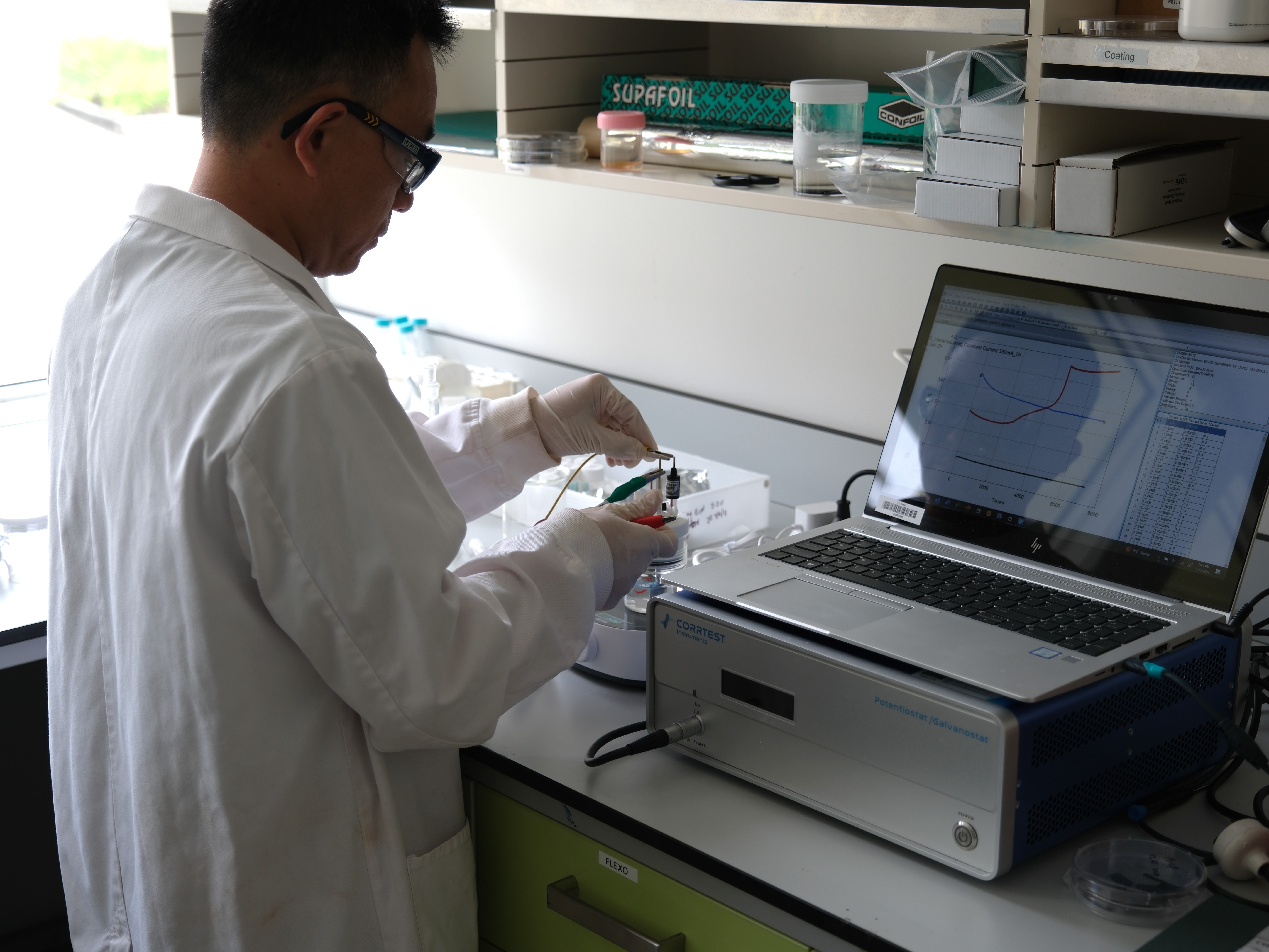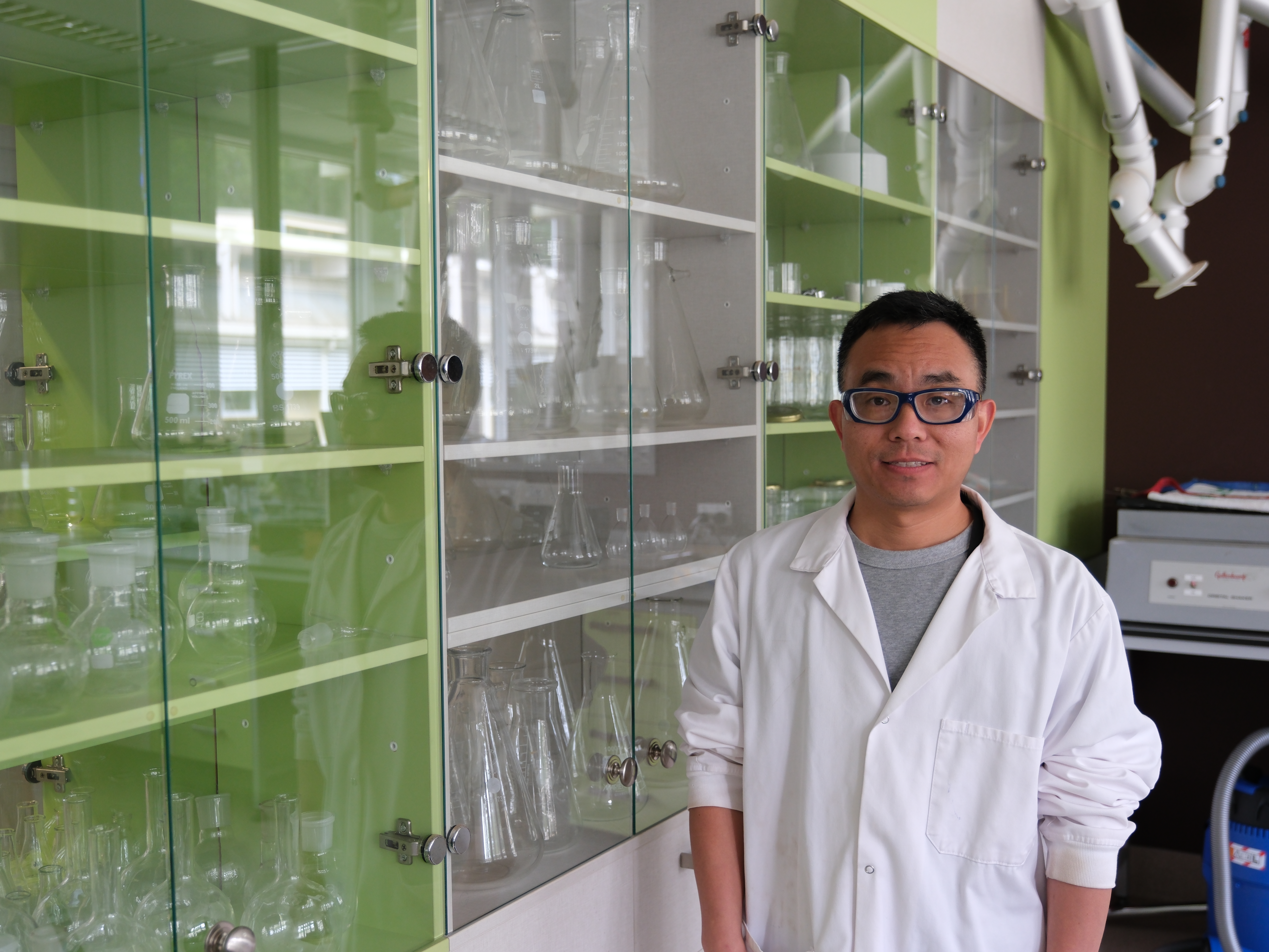Funded research could carve path for value from waste
Scion has secured Marsden Fund support to study the fundamentals of electrocatalysis — chemical reactions activated through electrical currents. It’s research that could lay the foundations for transforming bio-waste into high-value chemicals.
Regarded as the hallmark of excellence for research in New Zealand, the Royal Society Te Apārangi Marsden Fund supports researchers in science, engineering, maths, social sciences and the humanities to explore bold ideas that can have significant impact on the future of their discipline.
Sustainable Chemistry senior scientist Dr Bing Song was awarded a Marsden Fund Fast-Start grant for a three-year project looking for new sustainable energy pathways by investigating glucose reactions during electrocatalysis.
The electrocatalysis of glucose is a 100-year-old treatment, and it has recently gained increased interest from researchers in the emerging area of electrocatalytic upgrading of biomass and biochemicals.
Song’s work in this area dates back to 2019. During his recent research, he realised there was a significant gap in the research. The actual reactions of biochemicals under electrocatalysis can go wild — more than the widely recognised oxidation and reduction reactions. This motivated him to develop a Marsden proposal.
Song’s research will investigate the reaction fundamentals using glucose as an example. In the first of its kind research, the project will develop in-situ analysis protocols to build up the relationships between reactions, catalysts, and treatment conditions.
“We wish to provide in-situ understandings into the glucose pathways under electrocatalysis, rather than applying the conventional trial-and-error methods.”

Scion’s collaborators and facilities will allow this project to develop more advanced understanding to ultimately produce valuable chemicals from biowaste.
“If we invest into the fundamentals, based on those fundamentals you can create application. That’s the way to create more long-lasting impacts.”
Marsden Fund Fast-Start grants are set aside for emerging researchers and aimed at advancing fundamental research and showcasing research excellence. It is a prestigious fund for New Zealand.
Previous Marsden Fund winner Dr Katharine Challis is a mentor for the project and says the grant acknowledges Song’s ongoing efforts in this space.
“It’s extremely exciting that Bing’s been successful and reflects his consistent effort over several years to position this work in the existing literature and for good scientific impact going forward,” she says.
“The idea of the Fast Start is to encourage our early career scientists and give them a platform to establish their careers. That’s what we hope it will be for Bing. He can focus on his science and really build some momentum over the course of the programme.”
Challis says this fundamental research opens the doors for other applications. Exploring using glucose could provide insights to advance electrocatalysis of other biochemicals and broaden knowledge of the full potential of electrocatalysis for biomass.
By understanding the electrocatalytic process, we can start using it purposefully to create the products we want in an efficient and selective way, perhaps taking low-value biomass, such as wood waste, and converting it into useful products, without using expensive or complicated processes.

Song says the success of the application has been thanks to the efforts of a team. He highlighted Challis’ contributions as a mentor, as well as support from Polymer Chemistry team lead Robert Abbel, General Manager Florian Graichen, Portfolio Leader Paul Bennett, Portfolio Leader Stefan Hill,
Scion’s research support office, and all collaborators.
During the research project, Scion will also partner with Dr Nicholas Bedford from the University of New South Wales and recruit a PhD student through Saeid Baroutian at the the University of Auckland.
Working with Bedford will allow access to the Synchrotron in Australia which can be used for analysis at an atomic scale.
